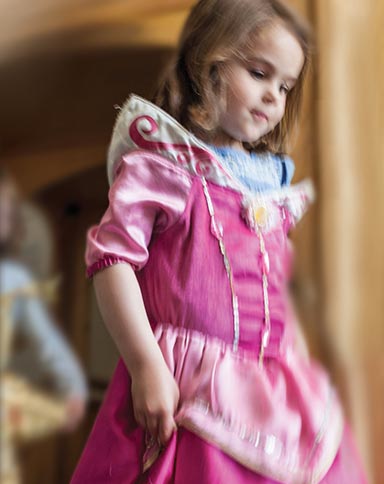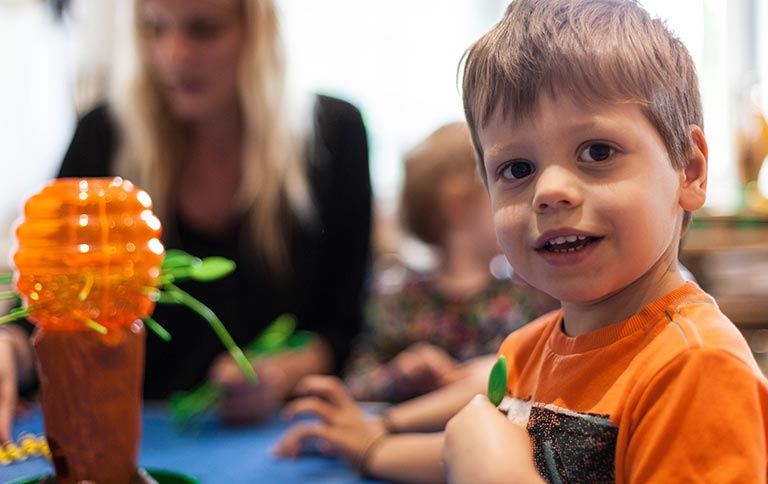

Welcome to the Butterflies !
Our pre-school children’s ages range from 36-60 months. At the pre-school stage, activities are planned to ensure differentiation between ages and abilities within the group. Our main focus is to nurture the children, enabling them to be motivated and active learners, ready and prepared for school.
How our curriculum is delivered to the Butterfly group
Our teacher compiles a well-considered half-termly plan. Drawing on statutory early years curriculum requirements, this plan uses assessments and observations to establish the children’s skills, knowledge and interests.
We acknowledge that some children can spend up to two years in Butterflies before they progress onto school, so there are times during the nursery day when we divide the children into two age and stage development groups. This gives our teacher the opportunity to work with our 4-year-olds in smaller groups at certain times of the day. We believe this approach really does support the children in becoming confident and effective learners ready to take their next academic step on to school. Ofsted recognises this: “Staff provide a wide range of activities that challenges the children in their learning.” (Ofsted 2017) Differentiation is something that occurs naturally within the room during whole-class, teacher-led learning time and also during group activities. The group benefits from this diversity in age, for when younger children join the group, the older children can act as mentors. They thrive on this responsibility and in turn the younger members of the group learn from their older peers. We are also aware of the fact that when children are grouped according to their age, they lose the opportunities to learn from each other and the ability to form the different kinds of social interaction to be gained from mixing with children of different ages.
In the final term before the children leave us to attend school, there is a stronger focus on preparing them for this transition. Our teacher ensures that extra time is given to encourage ‘Self-help skills and Independence’ and to develop confidence as well as numeracy, language and literacy skills. Ofsted recognises this: “All children are making very rapid progress from their individual starting points. They are exceptionally well prepared for their next stage in learning and for their move on to school.” (Ofsted 2017)
Prior to children leaving to attend school, we contact feeder schools to establish links to ensure a smooth and easy transitional period.
Parents are involved in their children’s continual learning as they progress through the setting. Communicating with parents about their child’s education is crucial, so termly planning as well as assessment in the form of Learning Journals are shared with parents to enable them to follow their child’s progress and support their learning at home, should they wish to do so.
7.45 - 8.30 a.m.
Breakfast
8.30 a.m.
Child-initiated activities give children the opportunity to explore and engage in a range of activities of their choosing.
9.00 a.m.
The children self-register. This adult-led group time may include phonic work, mathematics, our ‘hello song’ and an introduction to the day. The children really do engage in this social group time and the younger members draw on the older children just as they would in a typical school classroom. Expectations will differ according to age range and from individual to individual.
9.15 a.m.
Outside play in our ‘outdoor classroom’ is a combination of adult-led and child-initiated activities.
9.20 a.m.
Outside play in our ‘outdoor classroom’ is a combination of adult-led and child-initiated activities.
10.00 a.m.
Encouraging independence is an important feature of the curriculum and washing and drying hands is part of that. At snack-time the children help serve and clear away.
10.15 a.m.
Teacher time with the whole group introducing the morning’s activities.
Our aim is to create an inviting and stimulating environment with purposeful, high-quality learning opportunities. We provide a combination of adult-led and child-initiated activities which reflect the chosen theme. Children can make their own independent choices from a variety of media and resources.
Careful consideration is always given to the different ages and abilities of the children in the group.
10.30 a.m.
Our teacher works with our 4-year-olds, while adult-led activities are provided for the younger children in line with the planning.
11.30 a.m.
After tidy-up time, we all come together for the last 15 minutes before lunch for a story, rhymes, calendar or songs.
12.00 noon
Lunchtime
12.30 p.m.
Quiet time and relaxation with books, stories, CDs, music CDs or yoga.
1.00 - 2.00 p.m.
The children continue to explore activities from the morning session, with added opportunities for them to choose other resources.
Outdoor play is a key element of the afternoon learning experience. This may include activities like parachute games, bikes, ball games, obstacle courses, nature walks, gardening in the allotment or adult-led games.
2.00 p.m.
At snack time an awareness of good hygiene practices is promoted with the washing and drying of hands. The children help to hand out the snacks and drinks and also to clear away.
2.15 p.m.
Adult-led activity to consolidate learning experiences from the morning session, alongside child-initiated opportunities for independent learning.
3.00 p.m.
Group time activity. After helping to tidy up, the children come together for a story, rhyme time, music and movement or a game.
3.15 p.m.
Teatime
3.45 p.m.
Quiet/relaxation time after tea, including story time..
4.00 p.m.
Child-initiated play until it is time for them to go home.